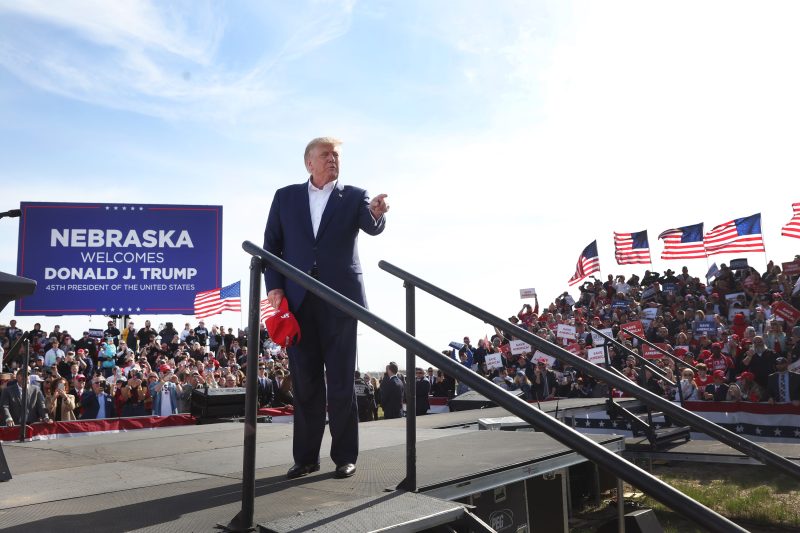In a move that has sparked fresh debates and controversies, former President Donald Trump has intensified his efforts to sway Nebraska towards changing its electoral vote allocation system. Currently, Nebraska, along with Maine, is one of the two states that implement the congressional district method, a system where electoral votes can be split between candidates based on the winner of each congressional district.
Trump’s push for Nebraska to adopt a winner-takes-all approach is not unprecedented. The former President has long been an advocate for this system, which is the prevailing method in the majority of states. Under the winner-takes-all system, the candidate who garners the most popular votes in the state wins all of its electoral votes. Critics argue that this method disadvantages minority parties and can weaken the impact of individual votes, especially in states where the electoral margin is narrow.
Nebraska’s current system, which allocates two electoral votes to the statewide winner and one vote to the winner in each congressional district, has drawn attention due to its potential implications. Trump, in his bid to influence the state’s electoral vote allocation, aims to pivot Nebraska towards adopting the winner-takes-all method. By consolidating all of Nebraska’s electoral votes under the winner-takes-all system, Trump believes that this change could potentially benefit the Republican party in future elections.
Proponents of the congressional district method argue that it offers a fairer representation of the electorate’s diverse political preferences. By allocating electoral votes based on individual congressional districts, this system can reflect the nuanced political landscape of different regions within a state. Critics of the winner-takes-all system point out that it can bypass the voices of minority voters, potentially leading to a distortion of the popular vote outcome.
As Trump ramps up his efforts to sway Nebraska towards changing its electoral vote allocation system, the state finds itself at a crossroads. The decision to adopt a winner-takes-all approach could have far-reaching consequences, not only for Nebraska but also for the broader national electoral landscape. The choice between maintaining the current congressional district method or transitioning to a winner-takes-all system represents a pivotal moment in the ongoing discourse surrounding electoral reform.
In conclusion, the debate over Nebraska’s electoral vote allocation system continues to unfold against the backdrop of heightened political tensions and divergent viewpoints. Trump’s push for a change in the state’s electoral voting method underscores the complexities of electoral systems and their impact on democracy. As Nebraska grapples with this decision, the stakes are high, and the outcomes could shape the future of electoral politics in the state and beyond.
